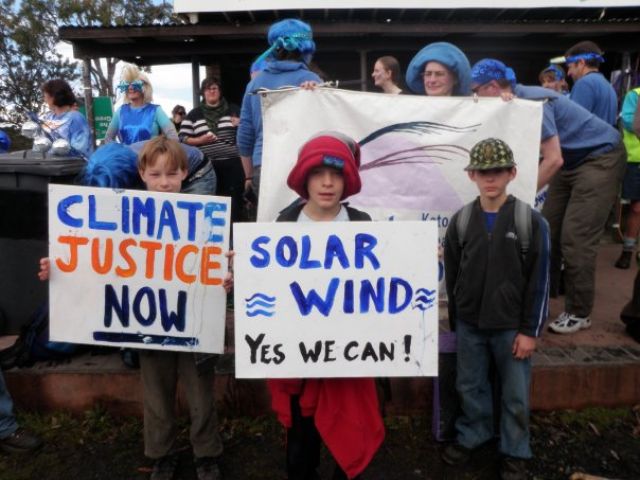
The science that informs us about climate change is becoming more and more alarming.
The National Snow and Ice Date Center said on March 23: “On March 7, 2011, Arctic sea ice likely reached its maximum extent for the year, at 14.64 million square kilometers (5.65 million square miles).
“The maximum extent was 1.2 million square kilometers (463,000 square miles) below the 1979 to 2000 average of 15.86 million square kilometers (6.12 million square miles), and equal (within 0.1%) to 2006 for the lowest maximum extent in the satellite record.”
Another alarming finding is that the permafrost in the Arctic is melting at an unprecedented pace. This could be one of the most dangerous feedback loops.
Sciencedaily.com reported in July 2009 that this permafrost contains a massive “1.5 trillion tons of frozen carbon, about twice as much carbon as contained in the atmosphere”. If it's released by melting permafrost it could accelerate climate change dramatically.
On its website, the CSIRO said that “Greenhouse gas emissions from human activities are more than 90 per cent likely to have caused most of the global warming since the mid-20th century.”
Results of climate change include:
• the retreat of glaciers and sea-ice,
• a decline of 10-15% of the Arctic sea ice extent and a 40% decrease in its average thickness,
• an average sea level rise of 20 millimetres a decade over the past 50 years,
• changes in mating and migration times of birds,
• an increase in coral bleaching due to increased water temperature.
Further, snow depth at the start of October has declined 40% in the past 40 years in the Australian Alps.
The CSIRO's 2010 State of the Climate report said the changes seen in Australia due to climate change are, “highly variable rainfall across the country, with substantial increases in rainfall in northern and central parts of Australia, as well as significant decreases across much of southern and eastern Australia” and “rapidly rising sea levels from 1993 to 2009, with levels around Australia rising, between 1.5 and 3mm per year in Australia’s south and east and between 7 and 10mm in the country’s north”.
The extreme weather that Australians faced over the summer, including floods and cyclones, was also experienced across the world from Brazil to Bangladesh and Sri Lanka.
On February 3, ABC News reported that climate change adviser Ross Garnaut said floods and cyclones would become more extreme as climate change gets worse.
Unfortunately, the national plan on climate change is stuck with federal politicians debating the merits of a carbon price. The Labor government's target of a 5% cut in Australia's emissions by 2020 is so far from what is needed that it is virtually useless.
The situation is more urgent than ever. We need to build a movement that can win. There are no shortcuts to building this movement, but just as with what happened in Egypt, a broad alliance between different groups in society can win big changes by uniting and putting huge pressure on the government.
A step to building this climate action is the Climate Summit, a conference for grassroots climate groups and activists. It is being held in Melbourne over April 9-11 and will hear from speakers such as David Spratt, Ian Lowe, Clive Hamilton and organisations like the Lock the Gate Alliance and the Australian Council of Trade Unions.
Workshops and feature sessions will also discuss issues like campaigning for 100% renewable energy, building a political movement, working with unions, and building alliances.
[To register or view the program of the conference visit www.climatesummit.org.au ]